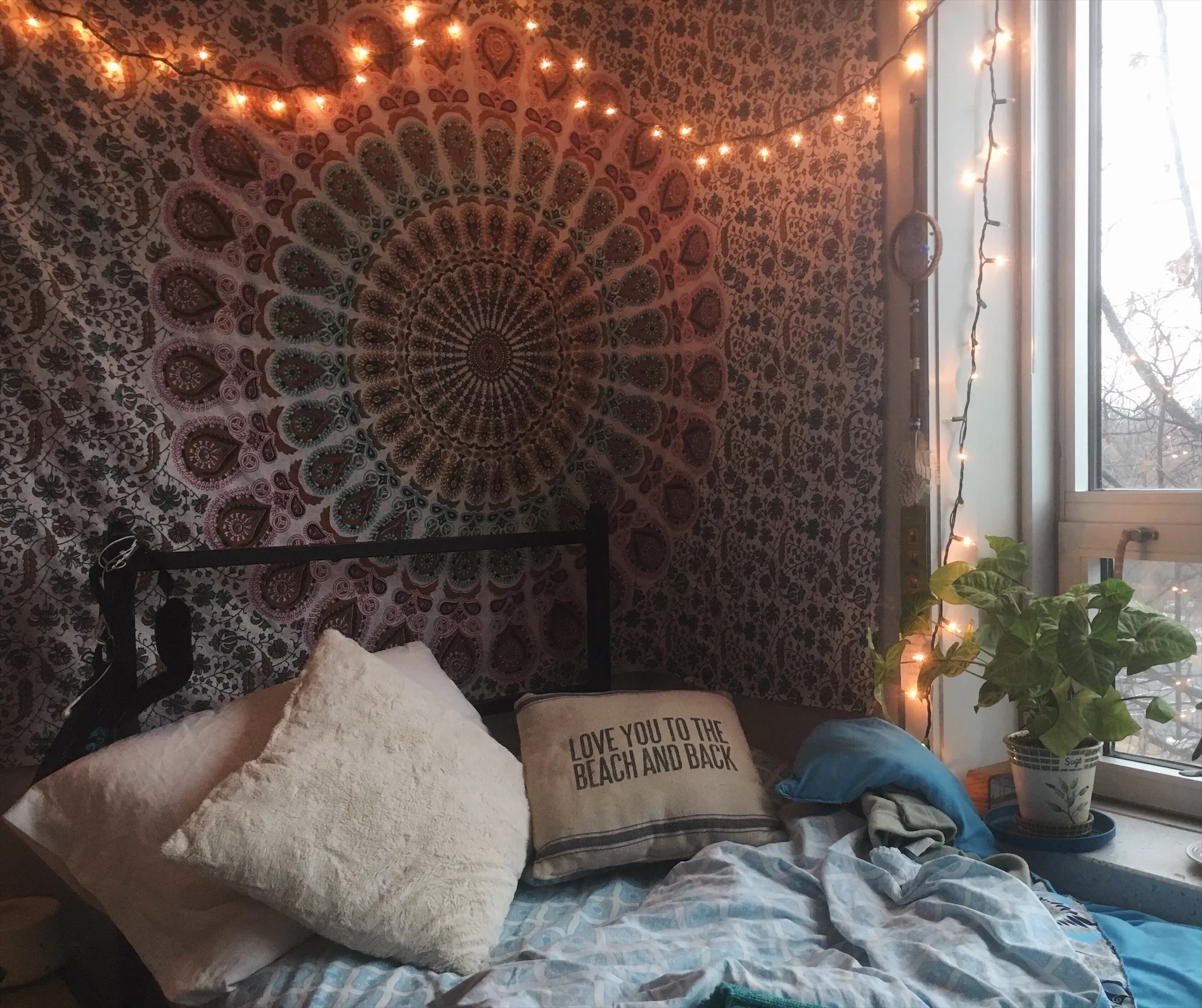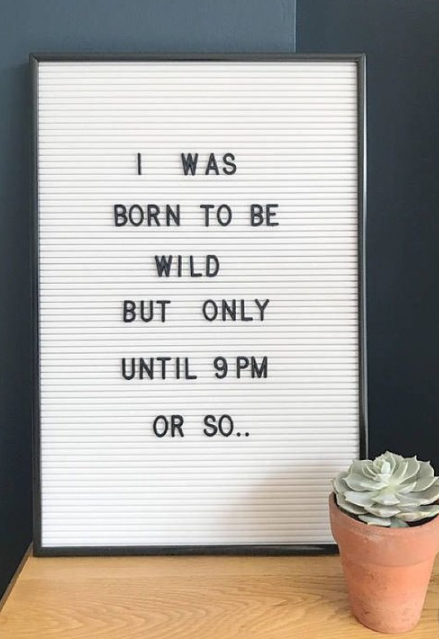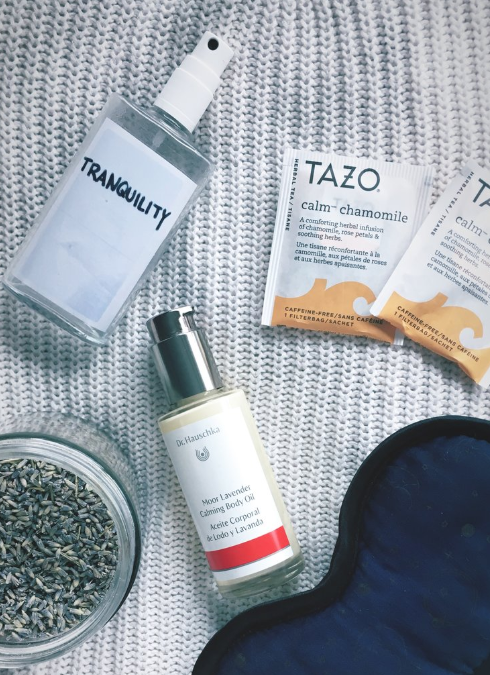Your Best Sleep Ever
The Overlooked Importance of Sleep
"A good laugh and a long sleep, are the two best cures for anything."
Sleep is often the most overlooked aspect of our health, but it happens to be one of the most important parts. According to the National Sleep Foundation, “Sleep affects how we look, feel and perform on a daily basis, and can have a major impact on our overall quality of life...The one-third of our lives that we spend sleeping, far from being “unproductive,” plays a direct role in how full, energetic and successful the other two-thirds of our lives can be.” This is why we hear the reference “beauty sleep!”
Sleep is not for the weak, in fact it's quite the opposite!
We live in a world today that leaves little time for real rest and relaxation. Some of us may even find ourselves doing some last minute work in bed right before flipping the lights off and closing our eyes. We may feel that we are being productive by putting sleep on hold, when really we are doing the opposite. If you pull an all nighter to study or get that essay done, or only get a few hours of low quality sleep, chances are you will wake up feeling tired and moody with a headache and a major lack of energy and motivation. Makes sense, right? If you don’t charge up your “battery”, it won’t work. Very similarly, if we don’t get a good night’s rest, we won’t be able to function at our optimal level the next day, and these are only some short term impacts of sleep deprivation.
Many studies have proven that long term sleep deprivation leads to higher rates of anxiety and depression, accelerated aging, high blood pressure, heart failure, hormonal imbalances, weakened immunity, stroke, and obesity. How can sleep cause weight gain? Sleep impacts how our metabolism and hunger hormones operate. Lack of sleep can lead to a slower metabolism and increased amounts of the hunger hormone called ghrelin, causing you to eat more. We eat calories for energy, and if we are lacking energy, it makes sense that we would reach for high calorie junk foods and sweets when we are tired.
Of course, you do not have to do all these things to get good sleep, they are just some ideas. For example, if you have a busy work schedule or night classes, it may be hard to eat dinner three hours before bedtime. And that is totally fine! We are not striving for perfection here, just better habits overall, and even if just a handful of these strategies are implemented you will start to see improvements
Fun fact! Athletes Usain Bolt, Michael Phelps, Lindsey Vonn, Maria Sharapova, and LeBron James all rely on a solid 8-12 hours of sleep per night for peak performance, according to Huffington Post. After all, the time that we are sleeping is when our bodies restore themselves, grow muscle, and repair tissues.
Some tips for your best sleep ever...
Set up a calm space! Set up your bedroom in a way that makes you feel the most cozy and comfortable. Create your own happy place of a bedroom, maybe even adding a mini fountain since the sound of running water is soothing. Add some christmas lights, plants, a jar of lavender, and pictures of people, places and memories that make you happy. And although I know that with busy schedules this is not always easy, try to keep it neat! Walking into your room and immediately feeling stressed out by the clutter will not put you in the relaxation headspace that leads to good sleep. And most importantly, designate your calm space for sleep and avoid doing homework or stressful tasks in your bedroom.
Strive to get about 7 to 9+ hours of uninterrupted sleep per night, as recommended by the National Sleep Foundation. This does not need to happen all at once! Try getting to bed just half an hour earlier and see how you feel.
Dim it down. We are naturally wired too get sleepy when it gets dark out. Try to reduce unnecessary lighting in bedroom or house in the hours prior to going to bed.
Avoid the blue glow. Studies have shown that the blue light on our screens tricks the brain into thinking it is daylight and reduces the amount of melatonin (the sleep hormone) that is released. Additionally, our brains are stimulated by everything that we scroll through on our news feeds, making it harder to settle down and fall asleep. Your best bet is to leave electronics outside of your bedroom at least half an hour before hitting the sack, and if you have to use your phone or laptop right before bed, be sure to turn on the night mode option or other apps that can reduce the blue glow. If you need some replacement entertainment, find a great book and read a chapter before bed.
Avoid the java after your morning cup. Caffeine consumption throughout the day can negatively impact your sleeping patterns.
Lose the booze at least in the three hours before you go to bed so that it has a chance to leave your system. This might be a tough one since chances are you probably aren’t drinking in the morning or mid-day, but just be mindful that although alcohol might make you feel relaxed and sleepy, it disrupts your sleep.
Meditation! This is something that I never quite understood until recently... you mean I'm supposed to just sit here...and think about nothing? But I've found that it really can help so much. Whether you are stressed out or would like to wind down for bed, this can work wonders at relaxing your mind and body. A good place to start is with one of the many meditation apps available (like Headspace or the Calm app), or you can choose from a wide range of different guided meditations on youtube. Even if it is only for 5-10 minutes, this can make all the difference.
Avoid Strenuous Exercise close to bedtime. If you tend to work out late at night, you may want to reconsider. Exercise is a form of stress on the body and causes the brain to release a hormone called cortisol, which is also naturally at its highest in the morning. The amount of cortisol being released gradually decreases, and is at its lowest at night. This increase in cortisol release is not a bad thing, unless it is taking place at night, since our bodies naturally want to unwind at this time
Finish eating at least 3 hours before bed. This will ensure that all of your food is digested so that your body can be using as little energy as possible and focus on rejuvenation and sleep.
Keep it cool. The National Sleep Foundation recommends keeping your room around 65 degrees for optimal sleep.
Peace & Quiet. If you have a hard time falling asleep due to living somewhere that is noisy at night, I can relate! Falling asleep in a college dorm seemed nearly impossible until I got a sound machine. The one that I have can be found here. This does a great job at cancelling out any noise outside of your space.
Keep it dark. According to sleep expert Shawn Stevenson, “Having light sources of any type in your bedroom can disrupt your sleep patterns.” He says that this is because even our skin has light receptors that, if triggered, can send messages to our brain that disrupt sleep. I have bright street lights outside of my room and the shades we are provided with do not block the light. To get the room dark at night, I hang a dark blue blanket in the window and it works great.
Journal. If you feel like you have a million thoughts running through your mind that you know are going to keep you awake, write it all down! This really can help, and if you don’t like the idea of journaling another great way to let out everything that is bothering you is to call a friend or family member and talk it out.
Air it out. I like to open up my windows if my room is stuffy right before bed to get some fresh air into the room.
Get some plants! According to a NASA study, plants can help purify the air in your bedroom and home since they release oxygen and improve air quality
Establish a nightly routine that you love. Your nighttime routine should be something to look forward to, and if you practice it regularly your body will get use to the signals that it is time to wind down and get some rest. Here are some things that I have found helpful to implement into my nightly routine.
Sip some sleepy tea.These are loaded up with helpful herbs and tea combinations that induce sleepiness. Some of my favorites are Trader Joe’s Well Rested Tea and Celestial Seasonings Vanilla Sleepytime or Tension Tamer.
Do some light yoga and stretching. I love Yoga with Adriene on YouTube and she even has a video for bedtime yoga!
Listen to relaxing music to wind down (I love Bon Iver, John Mayer, Iron & Wine, Alina Baraz, Frank Ocean, Daniel Caesar, and Chillhop playlists on Youtube)
Get into bed half an hour before the time you’d like to fall asleep, since unless you are exhausted, you probably won’t fall asleep as soon as you lay down.
Use essential oils. Not only do they smell great but they can serve many purposes for our health and they can even induce sleep. Lavender is one of the most well known oils for sleep, and some others include neroli, ylang ylang, and vetiver. You can use these by adding a few drops to water in a spray bottle or to an essential oil diffuser.
Take a relaxing bath and if you have them on hand, use epsom salts which contain magnesium. Magnesium is said to help soothe muscles and help you fall asleep, and honestly, what is more relaxing than a bath? You can also add a few drops of lavender or your favorite scent.








